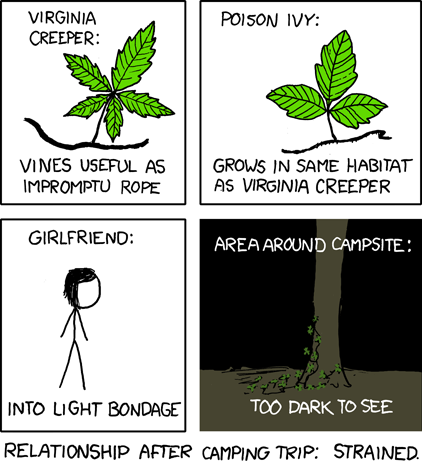I read a science article in the NY Times yesterday about how we have the innate ability to justify our choices, internally, despite an objective evaluation that what we did was immoral in a general sense.
It seems that when presented with the choice between an easy task or a hard task, knowing that another person would be along later to complete the task you didn’t select, most people choose the easy task and convince themselves that this is the fair choice, even though uninterested observers all agree that it is not. It continues by then arbitrarily placing people into two groups and then having one member of each group go through the experiment, picking the easy task. The people in each group agreed that when a member of the other group picked the easy task, it wasn’t fair, yet when one of the members of their own group picked easy, it was.
Humans are fun, those waskly cweatures.
This got me thinking about choices I’ve made. Without getting into too much detail, I’ll state that I’m generally a considerate person, but consideration can have a sharp delineation under the type of situation described by the experiment. I’m not sure I agree with the general assessment of the experimental subjects that the first person picking the easy task isn’t “fair”. I could argue (in fact I will argue) that when presented with a binary set of options, with no way to “fairly” distribute them, an inequitable distribution in favor of the first person is “fair” by the standards of our society. We Americans hold closely to a first-come-first-served ethic and with that in mind, it would be perfectly all right for the first person to claim the fruits of being early. Let’s frame it another way. Two people are going to the beach for a picnic. They are both seashell collectors. The first person finds a beautiful conch shell. Should that person leave it for the second person? I don’t believe that is a rational choice in the context of American society.
Let’s go back to the experiment for a moment. With the seashell analogy, I was describing a situation where the first person has a positive incentive for being first and picking the greater reward. In the experiment, the first person has a less-negative incentive to choose the easy task: either they will work for a short time or a long time. When I was a Boy Scout, in the Order of the Arrow, one of the ethics they teach is to not put down your burden until someone comes to take it from you (yes, I know, very Christian). From that standpoint, by arriving first, you are obligated to choose the more difficult task, to spare your fellow human the difficulty of completing it. This has a reward system built in, but only internally, especially if no one observes you during your moment of self-sacrifice. How many of us are so internally content that we can move through life knowing that we are just king shit, but no one around us is aware of that, or why? Again, to bring up our good ‘ol American cultural upbringing (and maybe I should state that this is White Suburban America) where we aren’t at all very Zen, there’s little incentive to opt for the hard task, under the situation where no one will be aware of your choice. Which brings me back to my wondering why the selection of the easy task was so overwhelmingly considered “unfair”.
Of course, I’m analyzing a psychological study that I’ve only heard about through a newspaper article. I can’t count the number of times I’ve read a science article in a newspaper and wailed with disbelief over how the writer could screw up the facts on something so easy, and this article may be no exception. I’m not a psychologist and don’t have any basis to judge the merits of the experiment. But I am a person who is presented with choices like this on a daily basis. Do we go with the easy route, knowing that the other person will never know? Or do we throw out a little sacrifice to help out our fellows, also knowing that the other person will never know?
I’ll leave the answer to that question as an exercise for the reader.


